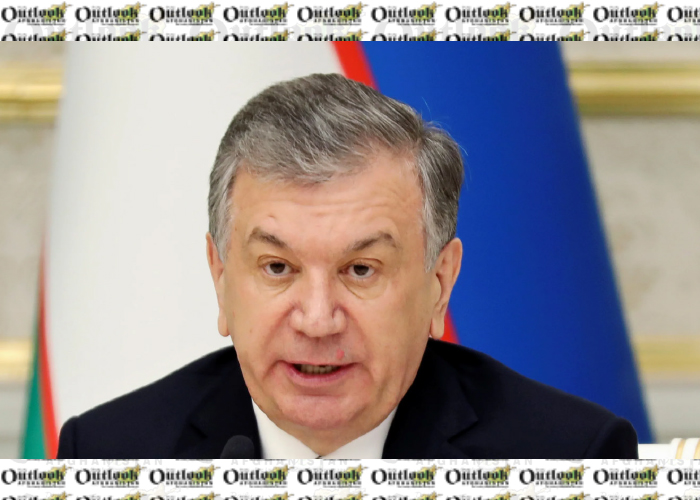HONG KONG -- Uzbekistan will become the latest nation to join the global race to carbon neutrality by 2050. In collaboration with the European Bank for Reconstruction and Development, or EBRD, the central Asian republic is set to declare its intention to significantly cut its reliance on thermal energy sources.
Uzbekistan will be one of the few developing Asian countries to openly pledge a fossil fuel emissions reduction target. Among the region's more developed economies, Japan, South Korea and Hong Kong have said they will meet the same goal by 2050. China's target year is 2060, and Singapore's commitment is for the same year, but it is shooting at halving emissions from what they will be in 2030.
Uzbekistan will lead its neighbor Kazakhstan, one of its former Soviet Central Asian peers, by 10 years. Kazakh President Kassym-Jomart Tokayev declared his country's goal in December.
The EBRD and Uzbek government on Monday are to sign a memorandum of understanding on long-term collaboration toward achieving carbon neutrality by 2050.
The MOU is to act as an open promise by both parties to push forward with the Central Asian country's strategy to convert its energy sector to gradually decarbonize its sources, Nikkei has learned. Even though no specific financial target will be spelled out, the EBRD is to help finance and provide technical support, such as by developing large-scale renewable power plants, introducing a modern electricity grid, rejuvenating gas generation capabilities and retiring old thermal electric facilities.
The Uzbek government has switched to a more open-door, market-oriented economy from a closed, centrally planned economy since the death of former President Islam Karimov, the strongman who led the country from its 1991 independence to his passing in 2016.
Even though Uzbekistan has been an EBRD member since 1992, the bank, whose main mandate is to assist former eastern-bloc countries transition to market-oriented economies, by 2010 had virtually severed relations with the previous Uzbek leadership.
With the new administration of President Shavkat Mirziyoyev in power, the EBRD returned in 2017 to sign a new loan and reopen representative office in Tashkent, the country's capital.
Uzbekistan is Asia's only double landlocked country, meaning inhabitants have to cross at least two other nations to reach any sea or ocean. The nation has a population of about 33 million, the largest among the five former Soviet Central Asian republics, but under Karimov, it lagged regional rival Kazakhstan in terms of development and upgrading its basic infrastructure.
Since reengaging in the region, the EBRD has been focusing its efforts on Uzbekistan and has invested over 2 billion euros ($2.42 billion) in 92 projects. One of its emphases is energy, a sector in which it has 11 projects with total value of around $1 billion, all at different stages of development, according to the bank's official website.
With the EBRD's support, Uzbekistan's Energy Ministry last May declared a low carbon energy strategy. The country decided to emphasize the development of power sources with low-carbon emissions, including solar, hydro, wind and nuclear. Central Asia currently has no nuclear plants.
Home » World » Uzbekistan joins global carbon neutrality race to 2050
Uzbekistan joins global carbon neutrality race to 2050

